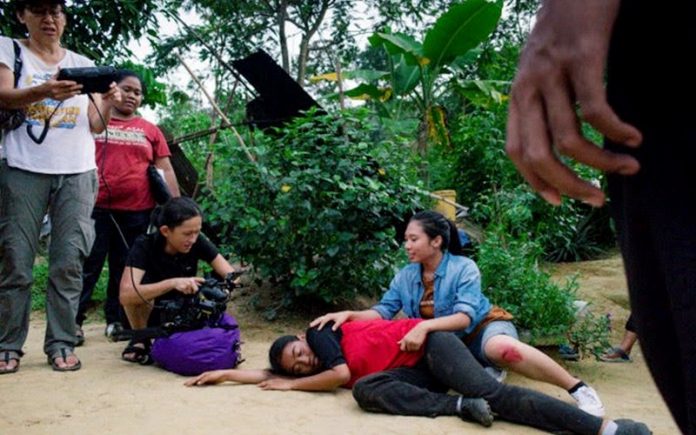
PETALING JAYA: For many Malaysians, fighting for their ancestral land or seeking equal rights is not something they relish, given the obstacles in their way.
The subjugation, intended or otherwise, of the Orang Asli communities in the country is a case in point.
The mainstream media either ignores their plight or fails to give any focus to their battles.
However, Sherrie Tan, a young girl from the Jakun tribe in Pahang, decided to stand up to be counted. She wanted her voice to be heard so that the people become better aware of the struggles of the marginalised communities as well as to protect what rightfully belongs to them.
Fortunately for Sherrie and 15 other young Orang Asli women from various tribes, an opportunity to collaborate with a filmmaker to document the plight of the remote communities came their way.
She said many Orang Asli tribes still forage for food. As such, the land and forests are crucial for them to continue their way of life.

“The continuous land encroachment for logging has adversely affected our food sources, medicines and natural resources used in cultural and spiritual ceremonies,” she said.
Yaliyana Lenab, of the Semai tribe in Negeri Sembilan, meanwhile, spoke of the deterioration of their traditions and identity due to the constant land battles that forced them to integrate into mainstream society as a way to survive.
From these issues, the collaboration managed to produce two short films — “Selai Kayu Yek” (or “My Tapioca”) and “Klinik Ku Hutan” (or “Clinic in a Forest”).
The first film unfolds the food shortage crisis faced by the communities as the destruction of surrounding primary forest means the food stocks are gradually declining.
“We have no more land to plant tapioca,” said Sherrie.
The second film focuses on the continuous land exploitation that is destroying herbs that are vital for the communities’ traditional medicines.
Brenda Danker, who spearheaded the Orang Asli films project, told FMT that the initiative was established to amplify the voices of young women in the communities through storytelling.
“From the films that we produced, it is very apparent that these women demand for equal rights for their communities,” she said.

Asked about the collaboration, Danker said she decided to work with the communities after realising that they were often neglected and overlooked by the mainstream media.
“I think marginalised voices are rarely highlighted or given focus in the media. For Orang Asli communities, we rarely see their stories on screen.
“In fact, these communities are not represented in the entertainment industry at all,” she said.
The social documentary filmmaker has been working with the communities for several years now on various projects.
“This is a long-term commitment and from what I can see, the communities have slowly become more vocal about their concerns.
“Further, we can see that the youngsters such as Sherrie and Yaliyana have started to take leadership roles within the communities,” she said.
That aside, Brenda also provides filmmaking classes for the communities in script writing, directing and film production, among others.
“We really want to ensure the discrimination and the violation that they face is constantly highlighted and the best way to raise the narrative is from the community itself,” she said.
“Selai Kayu Yek” and “Klinik Ku Hutan” will premiere on Dec 11 and 12 at FreedomFilmFest, an annual human rights documentary film festival that will run this year until Dec 13.
Tickets are available for free at www.cloudtheatres.com.


